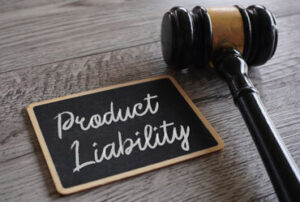 Product liability is the branch of law that deals with product tort cases. Product liability case will refer to a tort action brought against the manufacturer or seller of a particular product by the injured party. In the context of the lawsuit, which will be filed by the injured party or the plaintiff, the party will work to show that the injury happened because of some inadequacy in the manufacturing or marketing of that product (that is, that there was a defect).
Product liability is the branch of law that deals with product tort cases. Product liability case will refer to a tort action brought against the manufacturer or seller of a particular product by the injured party. In the context of the lawsuit, which will be filed by the injured party or the plaintiff, the party will work to show that the injury happened because of some inadequacy in the manufacturing or marketing of that product (that is, that there was a defect).
Theories Of Liability
The primary approaches that support product liability lawsuits are four in number.
They are:
- Negligence
- Breach of warranties
- Strict liability in tort
- Misrepresentation
Neither of these theories are exhaustive; it is likely that a plaintiff can make more than one in the same case. The theories are highlighted below.
Negligence- Negligence can mean a failure to perform duties that a reasonable man would not fail to do in similar circumstances so as to guard against causing harm to others. In the context of product liability, a product manufacturer or seller is negligent if he/she fails or omits to do something that is towards the user of the product which is foreseeable or if on the other hand he/she does something that can be considered as unjustified, measuring an unreasonable amount of risk of harm or loss. It will however translate to the various actions in each of the making entities and selling entities. There is always the chance of someone getting hurt when a product is developed poorly, produced poorly or when the product comes to the market without plenty of cautionary information on how to use it safely. The party responsible to provide the service or product that has been rendered negligent can be held legally responsible for the harm and losses occasioned by that negligence. Over 90% of all product liability lawsuits are founded on negligence principles.
Breach of Warranty– This simply means that breaching of warranties means a failure in the part of the seller of products to meet some particular statement given concerning the quality or kind of the product. Product liability for breach of warranty means that the seller failed to deliver on a promise that he/she made. These warranties may be expressed in terms of state or federal law.
Express Warranty– An express warranty is any statement made by the seller or the manufacturer regarding the quality, function, material construction or lifespan of the product that persuades the buyer to make a purchase. This warranty may be express and written, implied and oral or given in the form of a sample product.
Implied Warranties- The two types of warranties discussed above are warranties which are created by operation of law arising from the sales transaction itself. Two warranties that seem to play crucial role in product liability includes the implied warranties of merchantability and warranty of fitness for a particular purpose. Implied warranty of merchantability is an assurance that product sold was in good condition and is fit for use for which it was made. Implied warranty of fitness for a particular purpose is a special warranty that exists when the consumer relies on the seller’s opinion with regard to the uses to be made of the product.
Misrepresentation Advertising and Sales-require suppliers and producers of manufactured or traded consumer goods and services to convey accurate information about their products. Both the innocent, negligent or intentional misrepresentation of the quality of a product by the speaker shall give rise to a cause of action where the hearer of the utterance relied on it and suffered harm.